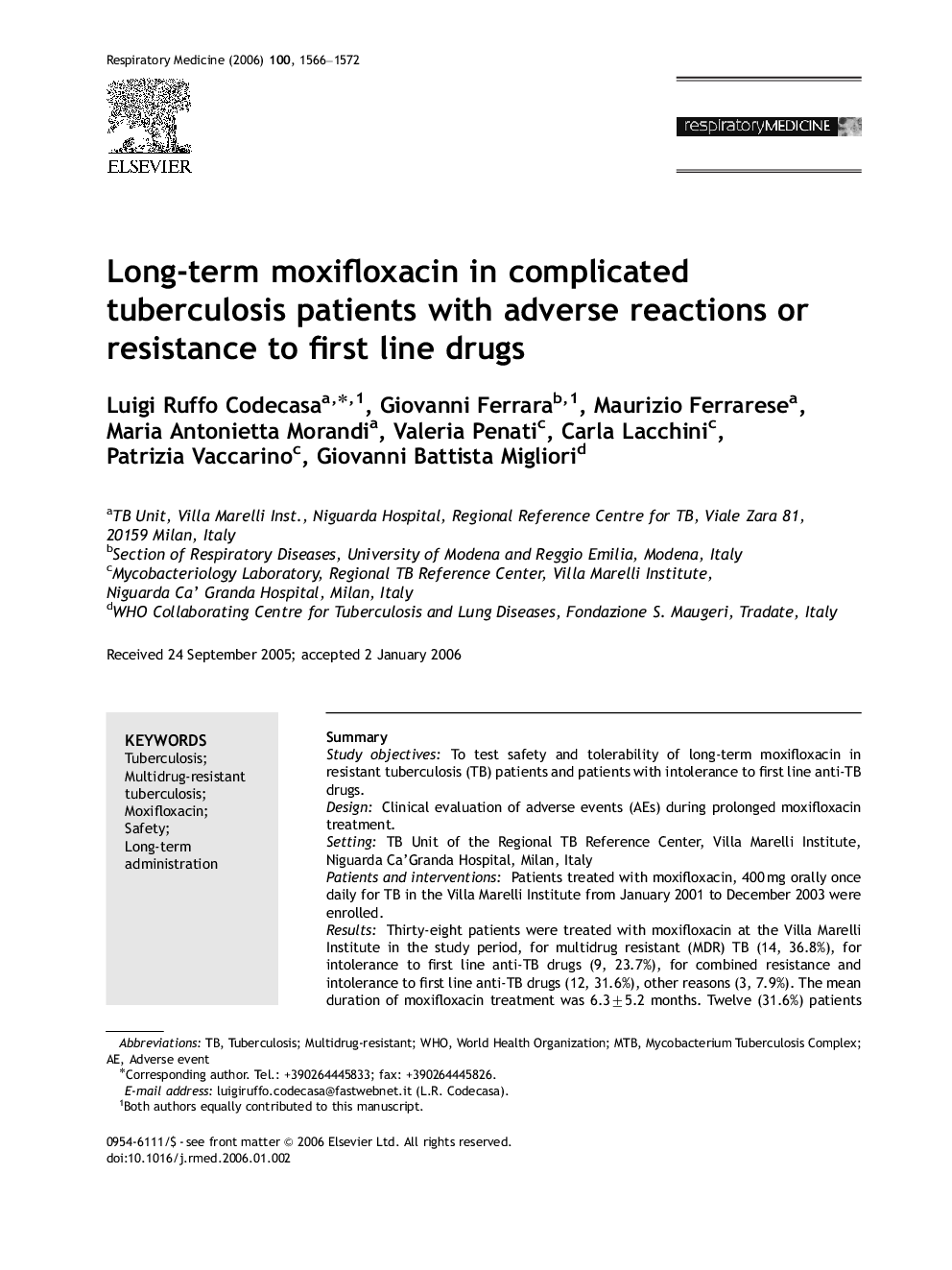| Article ID | Journal | Published Year | Pages | File Type |
|---|---|---|---|---|
| 4212236 | Respiratory Medicine | 2006 | 7 Pages |
SummaryStudy objectivesTo test safety and tolerability of long-term moxifloxacin in resistant tuberculosis (TB) patients and patients with intolerance to first line anti-TB drugs.DesignClinical evaluation of adverse events (AEs) during prolonged moxifloxacin treatment.SettingTB Unit of the Regional TB Reference Center, Villa Marelli Institute, Niguarda Ca’Granda Hospital, Milan, ItalyPatients and interventionsPatients treated with moxifloxacin, 400 mg orally once daily for TB in the Villa Marelli Institute from January 2001 to December 2003 were enrolled.ResultsThirty-eight patients were treated with moxifloxacin at the Villa Marelli Institute in the study period, for multidrug resistant (MDR) TB (14, 36.8%), for intolerance to first line anti-TB drugs (9, 23.7%), for combined resistance and intolerance to first line anti-TB drugs (12, 31.6%), other reasons (3, 7.9%). The mean duration of moxifloxacin treatment was 6.3±5.2 months. Twelve (31.6%) patients reported at least an AE due to moxifloxacin, mostly gastrointestinal (8, 21.0%), general (5, 13.2%) and central nervous system (3, 7.9%) AEs. In 4 (10.5%) patients the drug was withdrawn for major AEs; no irreversible or fatal events were recorded. Most of the patients (31, 81.6%) reported a treatment success, even if the success rate was lower in MDR TB patients (8/14, 51.7%).ConclusionsDespite the fact that a large proportion of patients experienced at least an AE due to moxifloxacin, the drug resulted safe in the long-term administration for complicated TB cases.
